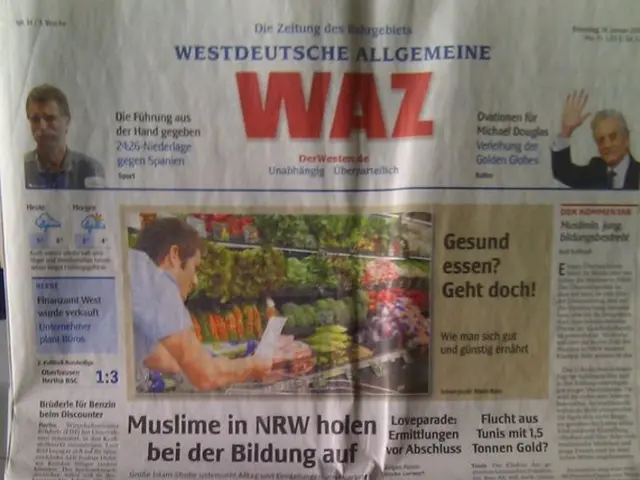Cryptocurrency Ransomware Earns $34 Million - Is SHIB Vulnerable?
In the rapidly evolving world of blockchain technology, stricter regulatory measures aimed at curbing ransomware activities could impact the liquidity flow and cross-chain transfers within Shibarium and other blockchain ecosystems.
Shibarium, a Layer 2 blockchain built on Ethereum, is designed to offer scalable, low-cost, and fast transactions while supporting decentralized governance, DAOs, and NFTs[1][2][3]. However, the increased regulatory scrutiny on crypto linked to ransomware could introduce tighter controls and compliance requirements on transactions and tokens associated with illicit activities.
This heightened oversight could lead to reduced liquidity, as exchanges, wallets, and DeFi platforms may delist or freeze tokens and addresses flagged in ransomware investigations to comply with regulations. This reduction in trading channels tightens liquidity for tokens like SHIB or associated assets in secondary markets.
Moreover, Shibarium's benefits from fast and efficient cross-chain capabilities might be compromised, as regulatory actions could introduce compliance checks across chains, causing delays or blocking transfers involving suspicious addresses or assets. Cross-chain bridges and transfer protocols may require upgraded Anti-Money Laundering (AML) measures, increasing operational complexity.
The potential impact on user trust and network growth is also significant. While Shibarium has maintained strong transaction volumes and ecosystem engagement despite market fluctuations[5], regulatory measures could dampen adoption if users fear restrictions or surveillance, reducing active participation and slowing ecosystem expansion.
Embargo, a ransomware-as-a-service (RaaS) group, has been reportedly demanding ransoms as high as $1.3 million and targeting U.S. hospitals and vital infrastructure[4]. Embargo employs a complex network of intermediary wallets, high-risk exchanges, and sanctioned platforms like Cryptex.net to conceal the source of their funds[6].
The investigation suggests that Embargo could be a rebranded version of the BlackCat (ALPHV) operation[7]. Both Embargo and BlackCat utilize the Rust programming language and demonstrate technical similarities, including operating comparable data leak sites and sharing wallet infrastructure on the blockchain.
For SHIB holders and the broader community, staying informed about evolving regulations and supporting initiatives promoting transparency and legal certainty is key. Clear and balanced regulatory frameworks are crucial to ensure the growth and adoption of decentralized finance platforms like Shibarium.
Sources:
[1] Shibarium Official Website: https://shibarium.io/
[2] Shibarium Whitepaper: https://docs.shibarium.io/shibarium-whitepaper
[3] Shibarium Roadmap: https://roadmap.shibarium.io/
[4] KrebsOnSecurity: Embargo Ransomware Group Demands $1.3 Million from U.S. Hospital: https://krebsonsecurity.com/2022/09/embargo-ransomware-group-demands-1-3-million-from-u-s-hospital/
[5] CoinMarketCap: Shiba Inu (SHIB) - Price, Chart, Info: https://coinmarketcap.com/currencies/shiba-inu/
[6] The Hacker News: Embargo Ransomware Group Uses Cryptex.net for Money Laundering: https://thehackernews.com/2022/09/embargo-ransomware-group-uses-cryptexnet.html
[7] BleepingComputer: Embargo Ransomware Group May Be a Rebrand of BlackCat (ALPHV): https://www.bleepingcomputer.com/news/security/embargo-ransomware-group-may-be-a-rebrand-of-blackcat-alphv/
- The increasing regulation of ransomware activities could pose a challenge for Shibarium, as stricter controls and compliance requirements may impact liquidity flow and cross-chain transfers.
- The potential regulatory measures aiming to curb ransomware activities might necessitate upgraded Anti-Money Laundering (AML) measures for Shibarium's cross-chain bridges and transfer protocols, increasing operational complexity.
- Reduced liquidity and compliance restrictions could deter users from actively participating in Shibarium's ecosystem, potentially slowing down growth and network expansion.
- The investigation into ransomware groups such as Embargo and BlackCat indicates a growing need for clear and balanced regulatory frameworks to promote transparency and legal certainty in the blockchain finance industry, ensuring its continued growth and adoption.




